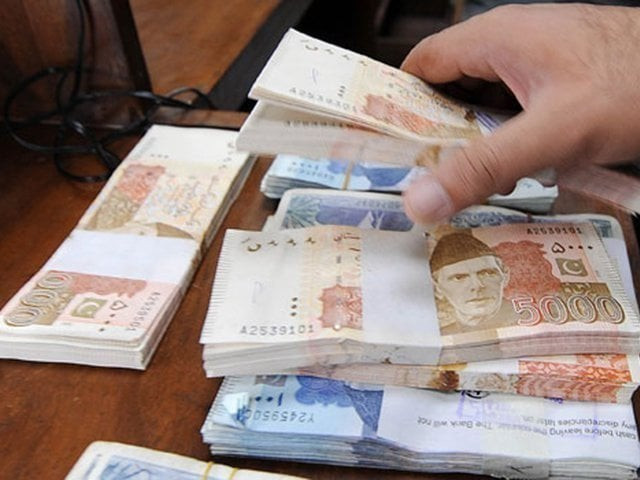Govt likely to swiftly phase out super tax on companies
May remove 10% additional tax on the companies keeping over 60% of profit for re-investment

May remove 10% additional tax on the companies keeping over 60% of profit for re-investment. PHOTO: FILE
However, discussions with industry people and reports of research houses suggest the government is considering removing the super tax earlier than the deadline.
“The government has agreed to consider phasing out the super tax swiftly in the budget,” revealed Pakistan Business Council (PBC) CEO Ehsan Malik, who met with officials the other day. “Initially, the tax had to be phased out over the next two years (by FY21).”
The government, through the Finance Act 2015, had imposed 4% super tax on the banking companies earning Rs500 million or more whereas for others the tax rate was 3% for fiscal year 2016. The collection of super tax was to be spent on the rehabilitation of internally displaced persons (IDPs) because of the war against terrorism at that time in Pakistan.
According to tax documents, the rate of super tax will go down by 1% every year, until it becomes zero by FY21. Industrialists and businessmen were of the view that the additional tax had increased their production cost and was discouraging new investment. Secondly, the rehabilitation process has come to an end now.
Malik said the government had also agreed with the businessmen that it would address the issue of double taxation on the disbursement of dividends by holding companies.
At present, subsidiary firms pay 15% tax when they disburse dividend to their parent companies and then the parent companies pay another 15% tax when they disburse dividend to the shareholders.
The practice has made the payment of dividends expensive for the holding companies and has resulted in a halt to the listing of new holding firms at the Pakistan Stock Exchange (PSX).
Addressing this issue is a must to encourage new companies to get listed at the PSX and become part of the documented economy.
Besides, the government is also expected to remove 10% additional tax on retaining over 60% of profit for the purpose of re-investment.
At present, it is compulsory for the companies to distribute 40% of profit among the shareholders. Otherwise, they will have to pay the additional 10% tax, which is discouraging re-investment.
The government has also agreed to rationalise taxes on the import of raw material, intermediate and value-added goods for different sectors.
At present, taxes on the import of many finished goods are lower than the intermediate goods and raw material. The practice has discouraged manufacturing and made the country a trading economy.
In addition to this, the government has also agreed to remove the condition of paying minimum turnover tax during the tax holidays granted to new entrants in different sectors. “New entrants are liable to pay the tax whether they are in profit or loss. The tax is discouraging investment,” he said.
“Broadly speaking, it will be a pro-investment budget, encouraging capital formation, capital investment and consolidation. They (government officials) have consented to remove the tax.” In the first mini-budget, the PTI government had failed to make such fundamental changes. But this time around, it seemed determined to take pro-business, pro-investment and export-encouraging measures, the PBC CEO said.
Tax-free budget?
The other day, Finance Minister Asad Umar stated that the mini-budget was aimed at ensuring ease of doing business and would be “tax-free”.
Experts interpreted the tax-free budget as the one where the government would not introduce new taxes, but may still change the rate of taxes to increase revenue collection.
Topline Securities, in a commentary to its clients, said the budget may include measures to create avenues for raising additional revenues to the tune of up to Rs150 billion.
“In the first half of FY19, the revenue shortfall touched Rs170 billion, as our estimates suggest that the hike in interest rate by 425 basis points during 2018 and rupee devaluation since December 2017 have increased the annual debt servicing cost of the government by Rs700-800 billion,” it said.
Reports suggest that the government is planning to set sales tax on petroleum products at 17%. A hike in the federal excise duty on cement, beverages, cigarettes and vehicles (1,600cc and above) is also on the cards.
“Rumours related to the increase in general sales tax (GST) are also doing rounds, where every one-percentage-point increase can raise up to Rs70-80 billion,” it said.
Given persistent concern over the fiscal deficit, the announcement of additional revenue measures in the mini-budget would be a positive development, it added.
Govt may lift restriction on late filers of tax returns
Winners: exporters and PSX
In order to increase exports, the government is expected to reduce duties on raw material imports by the export-oriented sectors, where the textile sector could stand out as a winner.
Secondly, the reduction or elimination of the advance tax of 0.2% on stockbrokers will lead to better cash flow for the brokerage industry.
Elixir Securities’ analyst Murtaza Jafar said there was speculation that the upcoming mini-budget may remove the restriction on new vehicle purchase by the non-filers of tax returns.
Additionally, the finance minister has hinted that the issue of gas infrastructure development cess will be resolved for the fertiliser sector.
Published in The Express Tribune, January 16th, 2019.
Like Business on Facebook, follow @TribuneBiz on Twitter to stay informed and join in the conversation.



















COMMENTS
Comments are moderated and generally will be posted if they are on-topic and not abusive.
For more information, please see our Comments FAQ